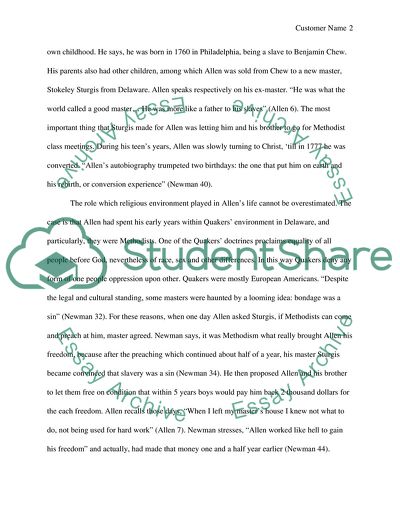Cite this document
(Richard Allens Contribution to American National Cultural Tradition Essay Example | Topics and Well Written Essays - 2750 words, n.d.)
Richard Allens Contribution to American National Cultural Tradition Essay Example | Topics and Well Written Essays - 2750 words. https://studentshare.org/religion-and-theology/1860017-bishop-richard-allen-founder-and-first-bishop-of-the-ame-church
Richard Allens Contribution to American National Cultural Tradition Essay Example | Topics and Well Written Essays - 2750 words. https://studentshare.org/religion-and-theology/1860017-bishop-richard-allen-founder-and-first-bishop-of-the-ame-church
(Richard Allens Contribution to American National Cultural Tradition Essay Example | Topics and Well Written Essays - 2750 Words)
Richard Allens Contribution to American National Cultural Tradition Essay Example | Topics and Well Written Essays - 2750 Words. https://studentshare.org/religion-and-theology/1860017-bishop-richard-allen-founder-and-first-bishop-of-the-ame-church.
Richard Allens Contribution to American National Cultural Tradition Essay Example | Topics and Well Written Essays - 2750 Words. https://studentshare.org/religion-and-theology/1860017-bishop-richard-allen-founder-and-first-bishop-of-the-ame-church.
“Richard Allens Contribution to American National Cultural Tradition Essay Example | Topics and Well Written Essays - 2750 Words”. https://studentshare.org/religion-and-theology/1860017-bishop-richard-allen-founder-and-first-bishop-of-the-ame-church.


